DIII-D discharge 164510 is being analyzed
The DIII-D discharge 164510 is a high plasma current discharge with two times of interest at t=4.1 sec with the plasma current 0.9 MA and at t=5.01 sec with the plasma current 1.05 MA.
The MMM7.1 model in the TRANSP code has been used to model this discharge. At both times, the electron and ion temperatures are found to be under-predicted. The MMM7.1 has also failed to reproduce the internal transport barrier observed in the ion channel of transport.
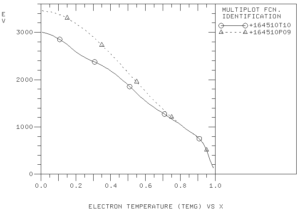
The electron temperature profile at 4.1 sec predicted with the MMM7.1 model (solid curve) and experimental profile (dashed curve).
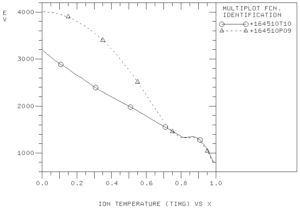
The ion temperature profile at 4.1 sec predicted with the MMM7.1 model (solid curve) and experimental profile (dashed curve).
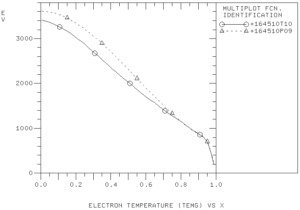
The electron temperature profile at 5.01 sec predicted with the MMM7.1 model (solid curve) and experimental profile (dashed curve)
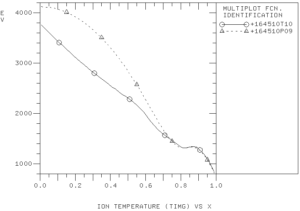
The ion temperature profile at 5.01 sec predicted with the MMM7.1 model (solid curve) and experimental profile (dashed curve).
There is a strong ion thermal transport driven by ion temperature gradient modes at both times of interest:
The electron thermal transport is smaller than the ion thermal transport.
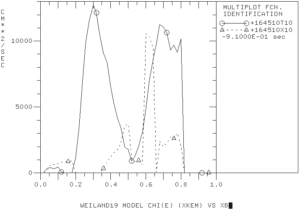
Electron thermal diffusivities from Weiland component of MMM7.1 at 4.1 sec (solid curve) and 5.01 sec (dashed curve).
The contribution from the ETG component is also relatively small and does not change much between two times of interest.
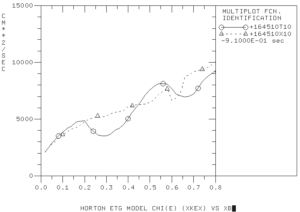
Electron thermal diffusivities from the ETG component at 4.1 sec (solid curve) and 5.01 sec (dashed curve).
It is likely that the model over-predict the ion thermal transport driven by ITG modes in this plasma parameter regime.

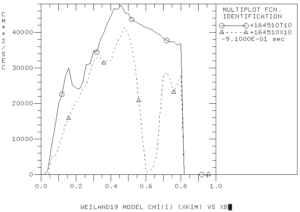
Leave a Reply